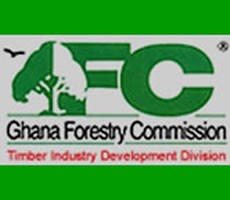Mr. Thomas Okyere, Brong-Ahafo Regional Forestry Manager of the Forestry Services Division (FSD), has urged Ghanaians to create the needed balance between socio-economic development and sustainable environment.
He observed that infrastructural developments were springing up all over the country at the expense of the environment, because vegetation cover, particularly forest lands, was being cleared off with impunity.
Mr. Okyere gave the advice in an address delivered for him at a day's workshop on the establishment of a community Multi-Stakeholder Platform (MSP) for effective implementation of Reducing Emissions from Deforestation and Forest Degradation (REDD+) activities in Ghana at Nkoranza in the Brong-Ahafo Region.
The workshop, the sixth at the district level in the country since 2014, was organized by the Ghana Integrity Initiative (GII), a local chapter of Transparency International (TI), and funded by the European Union (EU) through TI Secretariat in Berlin.
It was attended by 60 participants selected from six communities in the Nkoranza South Municipality and the Nkoranza North District in the Region.
They included farmers, charcoal burners, traditional rulers, fire service personnel, forestry officers, representatives of Federation of Persons with Disabilities, Assembly and Unit Committee members, opinion leaders and members of social clubs.
The programme was to create the platform for diverse stakeholders to deliberate on policies and decisions on REDD+ activities and to build capacity of community members in holding public officials accountable with respect to effective implementation of policies, laws, bye-laws, rules and regulations to reduce the impact of climate change.
It was also a means to use and promote social accountability tools in climate change mitigation.
Social accountability tools are bodies like social auditing clubs who dedicate their times in monitoring REDD+ projects and forest management activities.
Mr. Okyere stated that availability of trees was very vital for the survival of humanity, but rather trees were being destroyed through illegal logging, illegal mining activities and environmentally unsustainable farming practices.
He lamented that global warming was increasing because of excess carbon dioxide in the atmosphere and lamented that the situation was prevailing because of the alarming rate of deforestation that was depleting the environment of trees and plants which should have absorbed the carbon dioxide.
Mr. Okyere therefore lauded the MSP project as very significant and timely because it would awaken the consciousness and readiness of society to engage in socio-economic practices that would contribute effectively in curbing global warming.
Mr. Michael Okai, Climate Change Finance Project Coordinator at GII, in a video presentation, educated the participants on “Introduction to Climate Change – Global Warming, and role of forests in global warming - REDD+”.
He also explained GII’s Vision and Mission, Core Values, Main Objectives and the “REDD+ Governance and Finance Integrity for Africa Project”, as well as “Advocacy and Citizen’s Participation” through a slide presentation.
Mr. Jacob Ahuno Tetteh, Programme Officer at GII in different slide presentations, explained to the participants the concept of “Social Auditing -Role of MSP in Social Auditing and REDD+” and ALAC (Advocacy and Local Advice Centre) and IPAIDABRIBE as Corruption reporting platforms”.
In a forum, participants commended the initiation of the MSP project and therefore expressed diverse impressions to justify the need for all stakeholders to contribute to its success.
Regional News of Tuesday, 21 July 2015
Source: GNA
Create balance between development and sustainable environment
 Forestry Commission
Forestry Commission
















